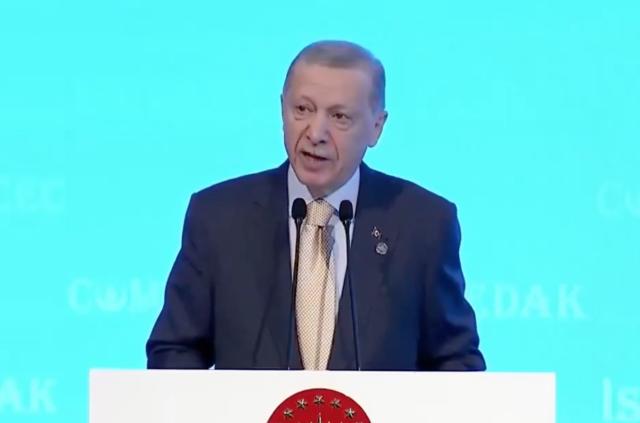In a significant escalation of diplomatic tensions, Turkish Foreign Minister Hakan Fidan announced retaliatory measures against Israel, following Israel's refusal to permit the aerial delivery of humanitarian aid to the Gaza Strip. This development comes on the heels of a report by "Globes" highlighting Turkey's unannounced restrictions on exports to Israel, marking a further deterioration in bilateral relations.
Fidan's statement emphasized the unprecedented global condemnation faced by Israel, revealing President Recep Tayyip Erdogan's authorization of unspecified actions in response to Israel's blockade of aid to Gaza. "For the first time in history, the whole world is condemning Israel," Fidan remarked, signaling a robust stance against Israel's decision to block Turkish humanitarian efforts. The Foreign Minister vowed that the measures would persist until Israel agrees to a ceasefire and ensures the unhindered entry of aid into Gaza.
🚨🇹🇷🇮🇱TURKEY IMPOSES EXPORT RESTRICTIONS ON ISRAEL
— Mario Nawfal (@MarioNawfal) April 9, 2024
The government announced it will immediately restrict the sale of 54 different categories of items, including steel, cement, and machinery until a ceasefire in Gaza is implemented.
The decision comes after Israel refused… pic.twitter.com/RBNuHKnUYF
In a concrete move, the Turkish Ministry of Trade disclosed a ban on the export of 54 commodities to Israel, including key materials such as marble, cement, steel, and aluminum. This decision underscores the growing economic pressure Turkey is willing to exert on Israel amidst this crisis.
Further complicating trade relations, Turkish authorities have been obstructing or withholding approval for the export of goods from Turkey to Israel for over a week. Industry insiders linked to Israeli import operations attribute these disruptions to governmental directives, casting uncertainty on the duration of these export challenges. It has become impossible to process export duties on Turkish shipments bound for Israel due to systemic errors specifically affecting transactions with Israel, a situation confirmed by "Globes".
Turkey’s Ministry of Trade announces: Restriction on exports to Israel https://t.co/MoAezdVYsH #Turkey #restriction #exports #Israel
— Business Turkey (@businessturkey) April 9, 2024
Adding to the strain, Turkish Airlines suspended its operations between Tel Aviv and Istanbul, with no plans to resume flights until March 2025. This suspension not only affects bilateral trade but also symbolizes a significant break in the countries' connections.
Despite these tensions, the economic interchange between Turkey and Israel had previously shown resilience, with trade volumes reaching around $5.5 billion in 2023. However, President Erdogan's increasingly hostile rhetoric, including comparing Israeli Prime Minister Benjamin Netanyahu to Adolf Hitler and issuing a contentious threat in a recent speech, has exacerbated diplomatic strains. Israel's sharp response to Erdogan's provocations, including summoning Turkey's deputy ambassador for a stern rebuke, highlights the deteriorating relations between the two nations.
Turkey announced restrictions on exports to Israel after it opposed planned Turkish aid drops over the Gaza Strip and President Recep Tayyip Erdogan faced criticism for not stopping trade with the country https://t.co/fGTCLdjM9i
— Bloomberg Politics (@bpolitics) April 9, 2024
The relationship between Turkey and Israel has been fraught with periods of tension and brief interludes of détente throughout Erdogan's tenure, characterized by Turkey's vocal support for the Palestinian cause. Although the countries experienced a temporary rapprochement in 2022, culminating in the reappointment of ambassadors and a return to normalized relations, the latest developments threaten to unravel the fragile ties. The impact of the current discord on the longstanding trade stability remains to be seen, casting a shadow over future diplomatic and economic interactions.


